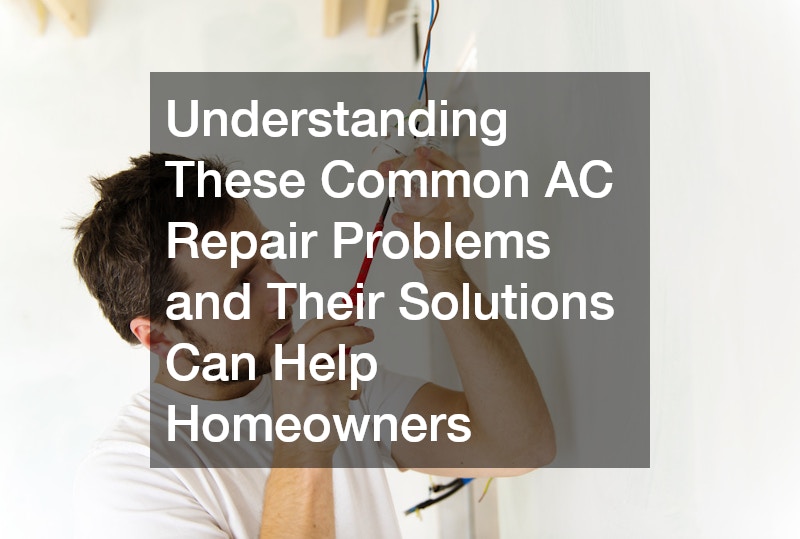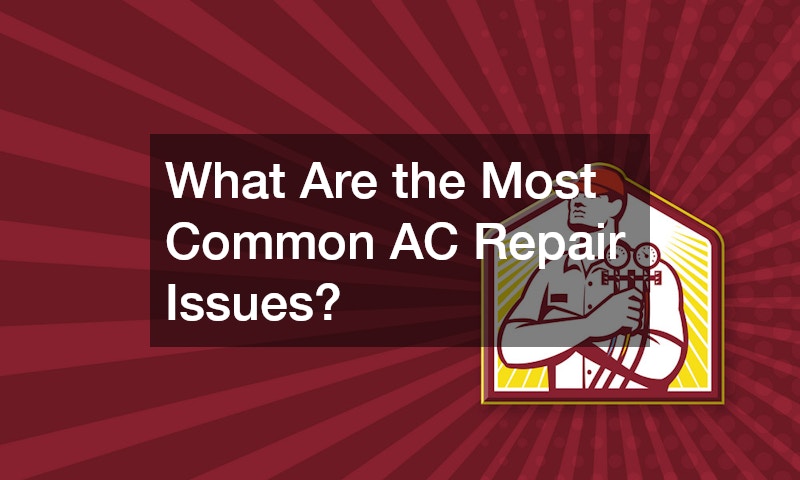
What Are the Most Common AC Repair Issues?
Air conditioning systems are essential for maintaining comfort, especially in regions where temperatures soar. However, like any mechanical system, they are prone to wear and tear. Understanding the most common issues that necessitate AC repair can help homeowners maintain their systems more effectively and avoid costly breakdowns. This article explores the most frequent problems affecting air conditioners and offers insights into how to prevent them.
Refrigerant Leaks
One of the most common AC repair issues is refrigerant leaks. Refrigerant is the lifeblood of your air conditioning system, responsible for absorbing and expelling heat to cool your home. When a leak occurs, the refrigerant level drops, reducing cooling efficiency and increasing energy bills. A system with low refrigerant struggles to maintain the desired temperature, which can overheat the compressor and lead to further damage. Fixing this issue involves locating the leak, repairing it, and recharging the system with the appropriate amount of refrigerant. Regular maintenance can help detect leaks early and prevent severe damage.
Dirty or Clogged Filters
Dirty or clogged filters are another frequent problem for air conditioners. Air filters are critical for maintaining air quality and ensuring the efficient operation of the system. Over time, they can become clogged with dust, pollen, and other debris, restricting airflow and putting unnecessary strain on the unit. This can lead to reduced airflow, inconsistent cooling, and higher energy consumption. Regularly cleaning or replacing the air filters every one to three months can significantly improve the system’s efficiency and lifespan.
Frozen Evaporator Coils
Frozen evaporator coils are another issue homeowners often encounter. These coils are responsible for absorbing heat from the air in your home. However, if the coils become too cold, they can freeze, rendering the system ineffective. This problem is often caused by restricted airflow, low refrigerant levels, or dirty coils. Signs of a frozen coil include weak or warm airflow, visible ice on the coil, and higher indoor humidity. Turning off the unit to allow the ice to melt is a temporary fix, but addressing the underlying cause requires professional assistance.
Electrical Control Failures
Electrical control failures are also commonly found in air conditioning systems. Frequent cycling of the unit, especially in extreme weather conditions, can wear out electrical components like the compressor and fan controls. Additionally, corroded wires or terminals can lead to electrical failures, causing the system to malfunction or fail to turn on altogether. Strange noises or burning smells may also indicate an electrical issue. Addressing these problems promptly with the help of a licensed technician is crucial to prevent further damage and ensure safety.
Thermostat Malfunctions
Thermostat malfunctions can disrupt the operation of your AC system as well. When the thermostat is faulty, it may fail to communicate your desired temperature settings to the system, leading to uneven cooling or complete system failure. Problems such as incorrect temperature readings, inconsistent cooling, or even dead batteries in manual thermostats are common. Ensuring the thermostat is properly calibrated and upgrading to a programmable or smart thermostat can resolve many of these issues and improve energy efficiency.
Drainage Problems
Drainage problems are another source of frustration for homeowners. Air conditioning systems remove humidity from the air, collecting the moisture in a drain pan and directing it outside through a drain line. If the drainage system becomes clogged or leaks, it can result in water damage, mold growth, and decreased system efficiency. Signs of drainage issues include water pooling around the unit, increased indoor humidity, and musty odors. Regularly inspecting and cleaning the drain line can help prevent blockages and leaks.
Worn-Out Components
Mechanical components such as belts, motors, and bearings can also wear out over time. When these parts are worn, the system may operate less efficiently, produce unusual noises, or even fail entirely. Regular tune-ups can help identify and replace worn components before they lead to costly repairs or complete system breakdowns.
Compressor Problems
Compressor problems are a major concern for air conditioning systems. The compressor plays a vital role in circulating refrigerant between the indoor and outdoor units. Issues with the compressor, often caused by refrigerant imbalances, electrical problems, or lack of maintenance, can significantly impact the system’s performance. Symptoms include ineffective cooling, strange noises from the outdoor unit, and frequent tripping of the circuit breaker. Compressor repairs are complex and should only be handled by experienced technicians. Preventive maintenance is key to ensuring the longevity of this essential component.
How to Prevent Common AC Issues
While some AC repair problems are unavoidable, regular maintenance can significantly reduce the likelihood of breakdowns. Scheduling annual inspections, keeping the outdoor unit free of debris, and addressing unusual noises or performance issues promptly are all effective ways to maintain your system. Regularly replacing or cleaning filters and monitoring the unit’s performance can also go a long way in preventing costly repairs.
Understanding these common AC repair problems and their solutions can help homeowners maintain a reliable and efficient cooling system. From refrigerant leaks to electrical failures, addressing issues early and investing in routine maintenance are essential steps in prolonging the life of your air conditioner. If you encounter any of these problems, consulting a qualified technician ensures proper and safe repairs. With proactive care, you can enjoy consistent comfort and lower energy bills for years to come.
.





